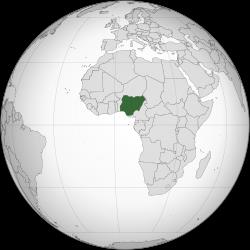News, Politics, Business, Tech And The Arts On Arabian Post
A surge in hunger has struck Nigeria, as sharply diminished aid inflows have forced closures of nutrition centres and blocked treatment for countless children at risk of malnutrition. Aid cuts from the United States and other Western donors have triggered an abrupt collapse in food assistance across northeast regions, particularly Borno State, the epicentre of a long-standing insurgency.
In northeastern Nigeria, the United Nations' World Food Programme has shut 150 nutrition centres during the June to November lean season. Those centres once served hundreds of thousands of vulnerable children, but now face closure amid critical shortages of Ready-to-Use Therapeutic Food. Health workers are having to turn away malnourished children; an unprecedented 600,000 are now at imminent risk of death due to insufficient treatment coverage.
The sharp decline in assistance follows January's freeze by the United States on humanitarian aid-previously accounting for 60% of Nigeria's funding. Britain, France, and Germany have also scaled back their contributions, leaving the United Nations funding plan slashed from $910 million to $300 million. By August, only half of that reduced amount had been secured.
Between January and June, Médecins Sans Frontières recorded at least 652 child deaths from malnutrition in Katsina State. That toll reflects a dramatic 208% increase in severe malnutrition cases compared to the same period in 2024. Security challenges and displacement have disrupted agriculture, further aggravating food shortages. ̅The UN food agency announced a halt to aid for 1.3 million people in conflict-affected northeast Nigeria as stocks ran out. ̅ ̅Nigeria allocated 200 billion naira-about $130 million-to the health sector, yet humanitarian response remains under severe strain. ̅
See also Protests Erupt in Ivory Coast Over Fourth-Term BidA hard-won lifeline has emerged, however, as the United States has approved $32.5 million in aid to address the growing hunger crisis. This support will reach over 764,000 internally displaced people in northeast and northwest Nigeria. Crucially, pregnant and breastfeeding women-numbering more than 41,000-will receive supplements through electronic vouchers, alongside 43,000 children receiving nutritional support.
Yet this funding marks only a fraction of earlier American support for humanitarian operations. Agencies estimate that 1.3 million Nigerians stand to lose access to food aid, with 300,000 children projected to face severe malnutrition and some 700,000 displaced persons left without essential assistance. Aid coverage has dropped sharply-only around 21% of Nigeria's $130 million aid request has been met-and emergency services in West and Central Africa are also being disrupted.
Aid reductions are bearing down across sectors: nutritional programmes are collapsing, maternal healthcare capacity is eroding, and educational structures are unravelling. In Maiduguri, schools catering to victims of the Boko Haram insurgency have had to dismiss hundreds of students and teachers following USAID's dissolution and funding withdrawal.
Targeted care for women and children is similarly imperilled. Clinics that had delivered antenatal, family planning, and support services for victims of gender-based violence have been severely curtailed. With maternal mortality among the highest globally-75,000 deaths in 2023-these disruptions jeopardise fragile health gains.
As humanitarian aid crumbled, the ground realities grew more acute. In Dikwa camp, mothers and emaciated children waited on mats on crowded floors; beds were full, food stocks exhausted.“I may not be able to eat tomorrow,” voiced one displaced mother, underscoring the deepening desperation.
See also Barloworld Flags Export Control Lapses Amid Takeover PushEfforts to offset the shortfall remain inadequate. Despite Nigeria's domestic allocation and new American funds, vast gaps persist. The country grapples with soaring food insecurity-currently at 31 million people-and limited capacity among international and local agencies. Without a return to sustained humanitarian investment, these communities face escalating hunger, deteriorating health, and worsening instability.
Notice an issue? Arabian Post strives to deliver the most accurate and reliable information to its readers. If you believe you have identified an error or inconsistency in this article, please don't hesitate to contact our editorial team at editor[at]thearabianpost[dot]com . We are committed to promptly addressing any concerns and ensuring the highest level of journalistic integrity. Legal Disclaimer:
MENAFN provides the
information “as is” without warranty of any kind. We do not accept
any responsibility or liability for the accuracy, content, images,
videos, licenses, completeness, legality, or reliability of the information
contained in this article. If you have any complaints or copyright
issues related to this article, kindly contact the provider above.
Most popular stories
Market Research

- Latin America Mobile Payment Market To Hit USD 1,688.0 Billion By 2033
- BTCC Announces Participation In Token2049 Singapore 2025, Showcasing NBA Collaboration With Jaren Jackson Jr.
- PLPC-DBTM: Non-Cellular Oncology Immunotherapy With STIPNAM Traceability, Entering A Global Acquisition Window.
- Bitget Launches PTBUSDT For Futures Trading And Bot Integration
- Ecosync & Carboncore Launch Full Stages Refi Infrastructure Linking Carbon Credits With Web3
- Bitmex And Tradingview Announce Trading Campaign, Offering 100,000 USDT In Rewards And More






















Comments
No comment